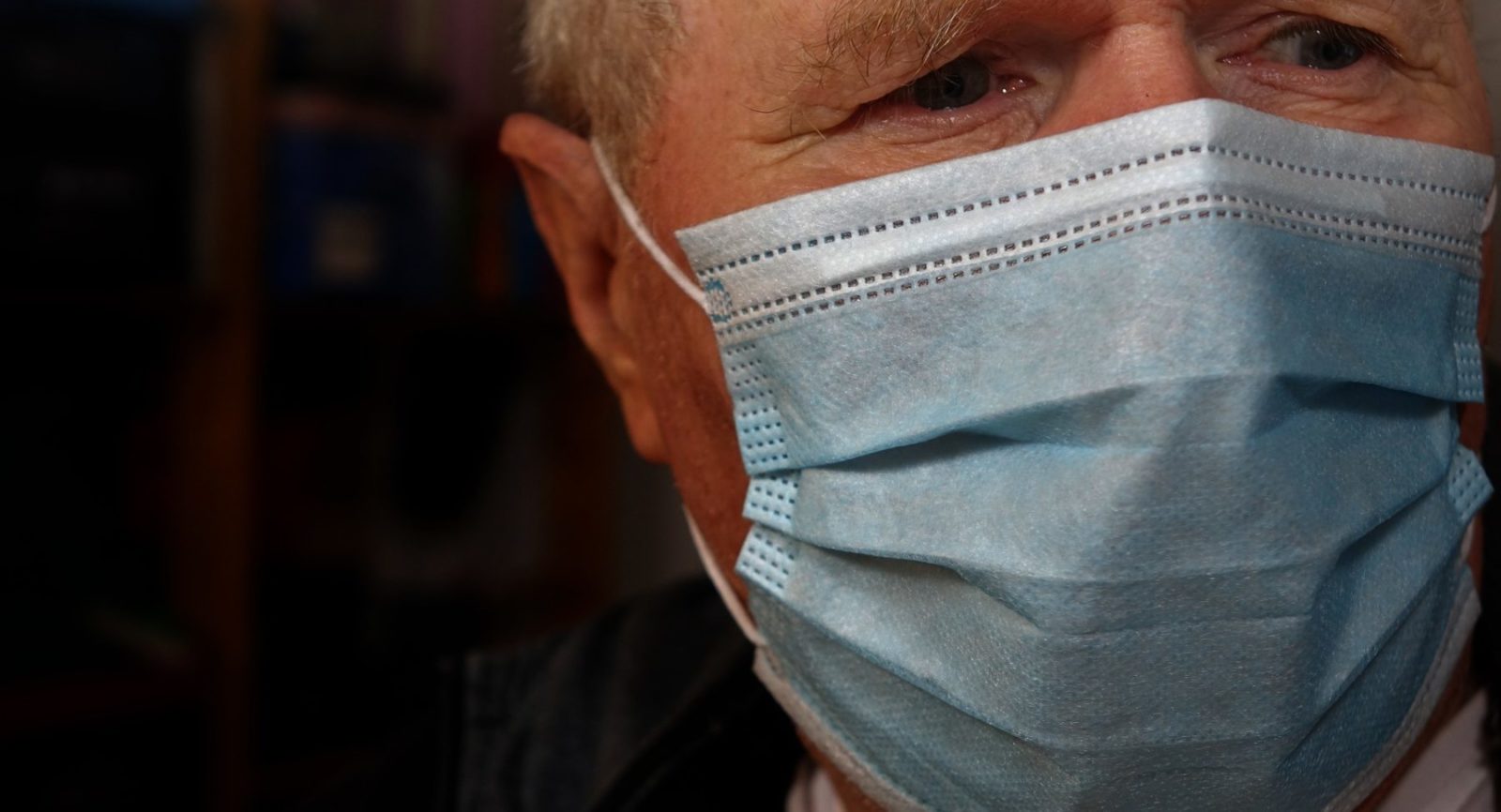Face Masks and Dementia Care

Although face masks are required in public spaces across most of the province, there are medical conditions including respiratory diseases, anxiety disorders, autism and other impairments that can make it difficult or impossible to wear a face covering for a long period of time.
If you are supporting a loved one living with dementia, they may be exempt from wearing a mask if their cognitive impairment makes it hard to wear or remove their mask safely. However, this can cause anxiety about going out in public, keeping your loved one safe or being stopped or questioned by other people. Depending on the stage of dementia, here are some ways to encourage your loved one to wear a mask and what to do if it’s not an option.
How can I get my loved one to wear a mask?
There are many reasons why wearing a mask can be difficult for someone with dementia or another cognitive impairment. The texture and fit can be uncomfortable and upsetting, breathing difficulties can cause anxiety or they may forget why they need to wear a mask at all. These tips may be helpful to encourage your loved one to wear a face covering safely and properly:
- Use simple, clear language to remind your loved one that masks keep us safe and protect others.
- Consider hanging a sign at the door as a daily reminder.
- Practice proper mask wearing at home where it’s calm, quiet and less overwhelming.
- Put your mask on in front of your loved one and ask them to copy you.
- Model a positive attitude about your own mask.
- Try different mask styles, fits and materials to find the most comfortable option. Scarfs, face shields or a loose covering may cause less issues and are safer than no mask.
If these strategies aren’t working and masks are causing the person you are caring for significant distress, their medical condition will excuse them from wearing one. You are the best person to determine what is safe and manageable for your loved one and masks are just one part of limiting the spread of COVID-19. Instead focus on physical distancing, staying home when sick and proper handwashing to keep them safe and to protect others.
What if the person I am caring for is unable to wear a face covering?
If your loved one with dementia cannot wear a mask, proof of the exemption from your health care provider is NOT required. Health officials are asking everyone to remember that some people cannot wear masks for medical, sensory or communication reasons and that these challenges are not always obvious. However, because masks are legally required, it can be uncomfortable when people are seen in public without a mask or if you can’t access a business as a result.
To avoid these situations, some caregivers are using signs or cards to explain that their loved one has a medical condition that prevents them from wearing a mask. Cards like these ones that read, “I am unable to wear a face mask. Be kind. Keep your distance. Thank you for your understanding,” can stop upsetting questions or comments. Caregivers are also using online ordering, curbside pickup or no contact delivery as much as possible to limit public outings, especially if regular respite care and support services are not available.
What can I do if my mask is causing my loved one distress?
Even if your loved one has a medical exemption, you will likely need to wear a mask around them. The person you are caring for may not recognize you with your face covered or may struggle to hear what you’re saying and this can increase dementia-related behaviours like agitation and aggression. If your mask is upsetting your loved one, try to:
- Use short, simple sentences and speak loudly and clearly.
- Add hand gestures to help describe what you are saying.
- Be as understanding and patient as possible—try to remember how overwhelming this is.
- Smile more! You can tell that someone is smiling by looking at their eyes.
For more information on supporting a loved one with dementia during the COVID-19 pandemic, visit here.
